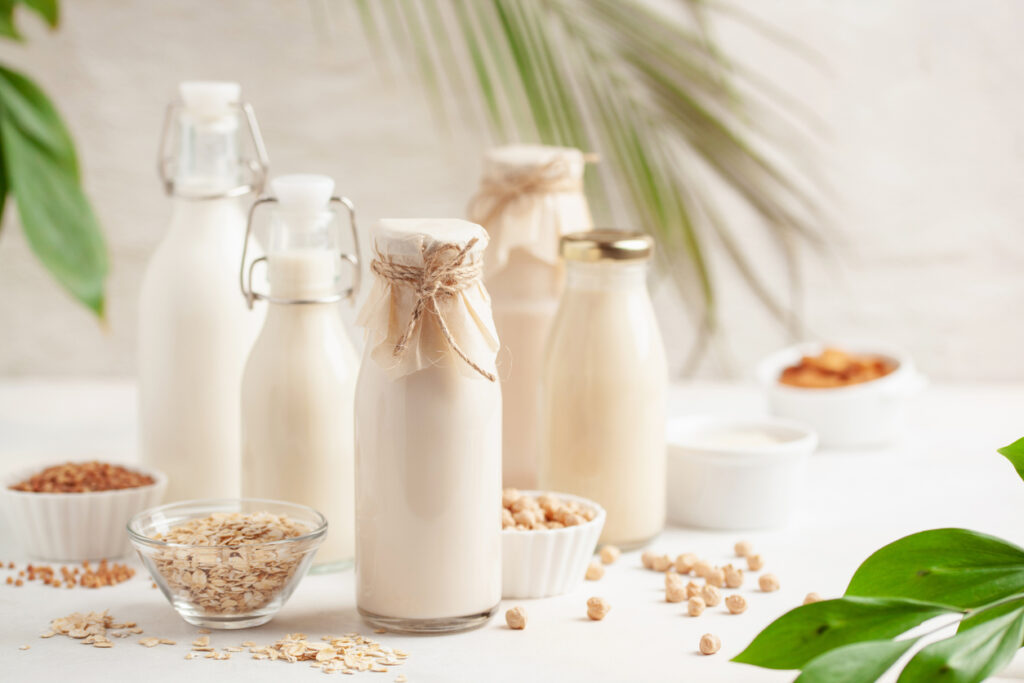
Power smoothies, cereal, coffee, tea, delish dishes — plant-based milk can enhance them all with creamy goodness. Almond milk used to be one of the few options for an alternative to cow’s milk, but plant-based milks have stepped up their game. Now there are more options than ever, each offering potential health benefits.
Let’s dive in and explore the world of alternative milks from a nutrition perspective, so next time you hit the market, you’ll be better equipped to choose one that contributes to your health goals.
Let Nutrition Be Your Guide
Lowest in Calories
Plant milks are typically lower in calories, unless you choose one with added sugars – which may not be the best choice if you have prediabetes, diabetes, or are trying to lose weight. Reducing sugar intake is good for everyone, as frequent sugar consumption typically leads to more sweet cravings and unwanted weight gain. My picks for the lowest-calorie options:
#1 Silk Unsweetened Cashew Milk
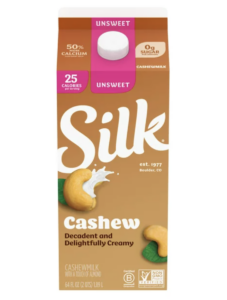
With only 25 calories per serving, Silk Cashew milk is one of the lowest calorie plant milks on the market. An added benefit: it’s an excellent source of bone-strengthening calcium.
#2 Almond Breeze Unsweetened Vanilla Almond Milk
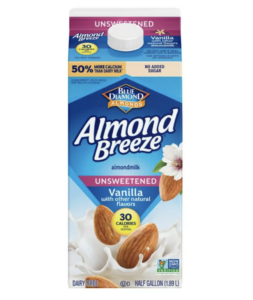
Almond Breeze Unsweetened Vanilla Almond Milk is the runner-up, with 30 calories per serving. It’s also a good source of calcium and vitamin D.
Top Choices for High Protein
Protein is an important energy source that has a small impact on blood sugars, builds and repairs muscle for a healthier metabolism, and helps form enzymes for digestion and white blood cells to fight off infection. Here are my top picks for high-protein options:
#1 Ripple Unsweetened Vanilla Plant-Based Milk
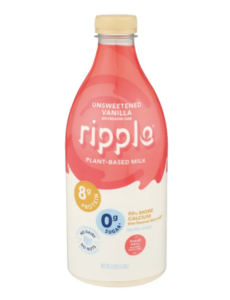
Ripple Unsweetened Vanilla offers 8 g of pea protein per serving, is an excellent source of calcium, and contains no nuts, or soy. Although this option has 2 g less of protein per serving than Silk Almond & Cashew, it has no added sugar and is 50 calories less per cup.
#2 Silk Almond & Cashew Milk
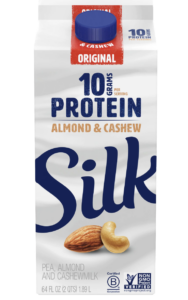
Silk Almond & Cashew is an excellent source of protein with 10 g of pea protein per serving. It’s a bit higher in calories (130 calories per serving), compared with other plant milks, but is a great source of calcium.
#3 Silk Organic Soy Milk
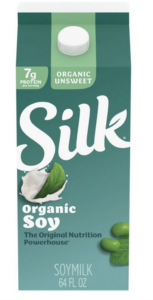
Silk Organic Soy is made from non-GMO soy and provides 7 g of protein per serving. It’s an excellent source of B12, an essential nutrient for a healthy brain and nervous system. It’s also high in the antioxidant riboflavin, and a good source of heart-healthy magnesium.
Healthy Fat Options
Plant milks have no cholesterol or saturated fat from animals – the type of fat linked to inflammation, insulin resistance and clogged arteries. The fats in my next two choices, on the other hand, are functional fats that may reduce inflammation and give your immune system a boost.
Good Karma Flax Milk + Protein
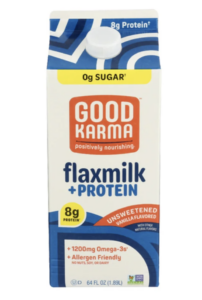
Good Karma Flaxmilk boasts 1200 mg of plant-based ALA Omega-3 fatty acids. These healthy unsaturated fats have been linked to prevention of heart disease, heart attack and stroke. They also may play a protective role against cancer and improve inflammatory conditions such as lupus, eczema and rheumatoid arthritis.
This alternative milk choice also contains 8 g of protein and is promoted by Good Karma as “allergen friendly.”
So Delicious Unsweetened Organic Coconut Milk
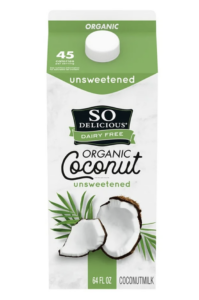
So Delicious Organic Coconut contains a type of fat called medium-chain triglycerides (MCTs) and is associated with health benefits, including weight loss support, better insulin sensitivity and increased exercise endurance. Nevertheless, because it’s higher in fat, it’s a good idea to keep balance in mind and see your dietitian for advice.
This organic option also has 120% Daily Value of B12, a vitamin usually only found in animal foods, making it a good option for vegans and vegetarians. As a non-dairy alternative, this plant milk also is a great source of minerals, including zinc and selenium to support your immune system.
For personalized guidance on how to include more plant-based foods in your diet, contact me for a one-on-one consultation.


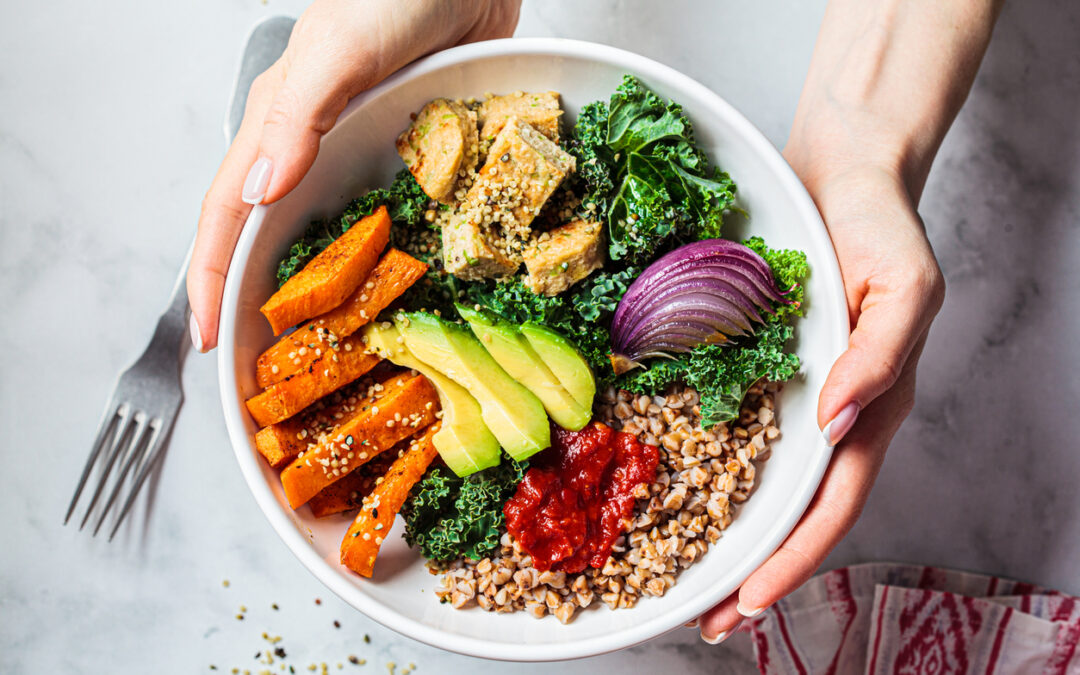


0 Comments